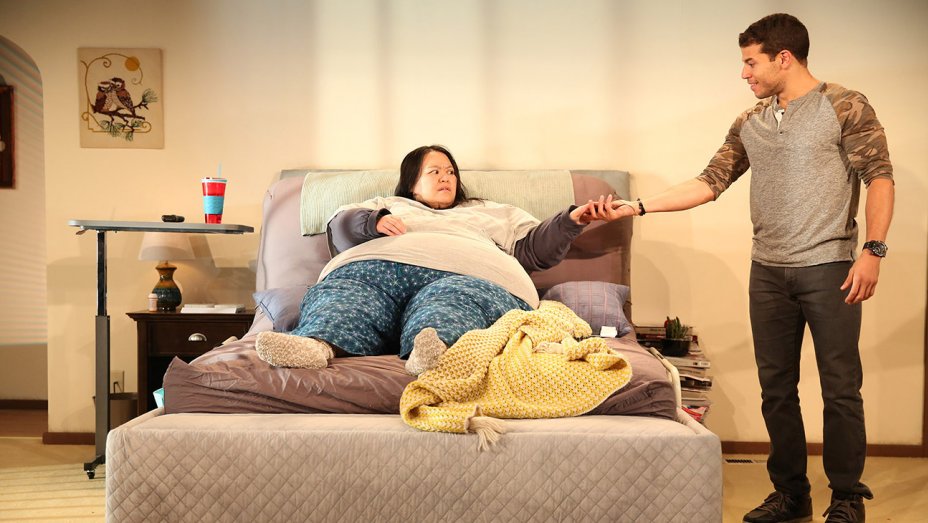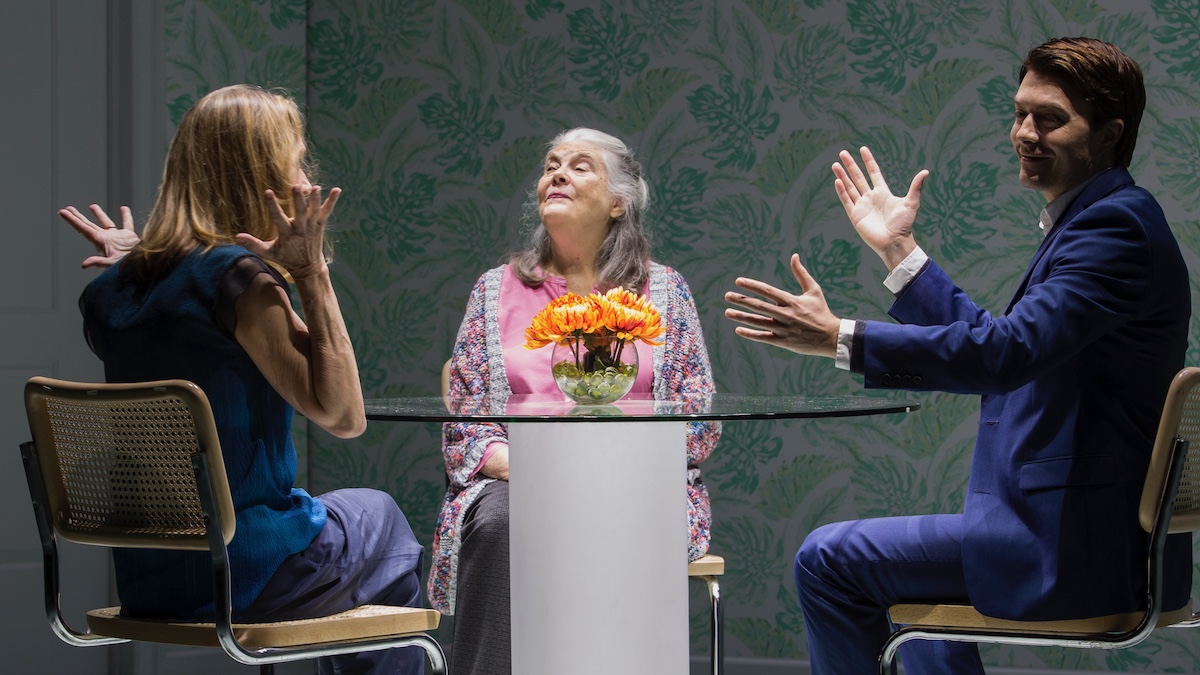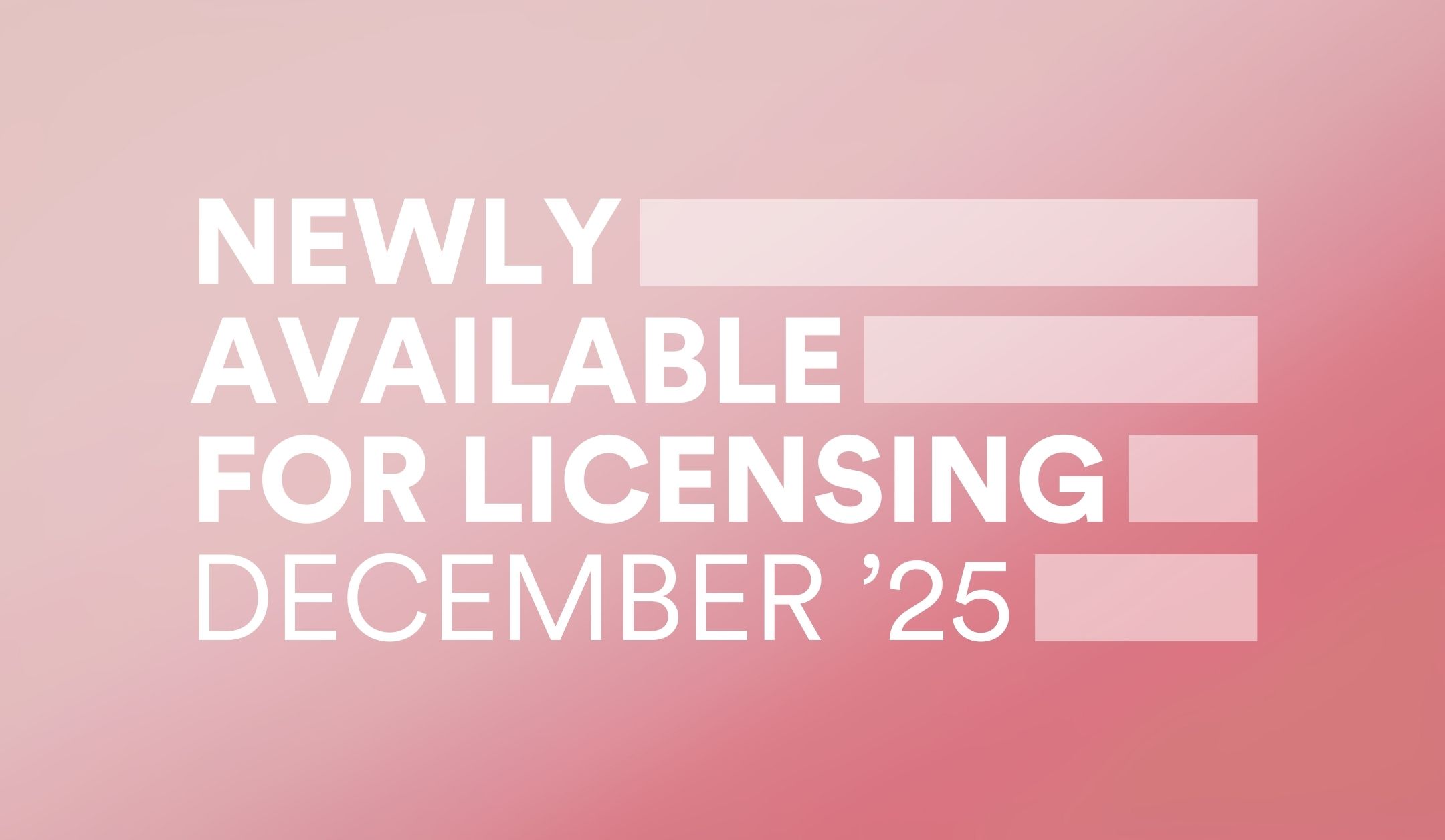
Vulnerability is universal.
No matter who you are or where you come from, sharing your innermost wants, fears, and desires is terrifying. Kingdom Come is about two people isolated from their own worlds who seek solace on the internet, and ultimately find deep connection in each other. Now this sounds like a sweet, little play, right? What if I told you they were both completely lying about who they are? To see and be seen by another person is one of the joys in this life, and for Layne and Samantha, neither have allowed themselves to go there because of their fear of rejection. When they meet each other online, somehow the alchemy of their lies creates an opening for each of them to experience love. But at what cost? I am interested in the millennial generation (of which I am a part), and our relationship to perceived connection vs. actual connection. So much of our connection is falsely presented and superficially touched on because so much of our time is spent behind the privacy of a screen. I do, however, think that in the digital world we live in now, we are just as subjected to the beauty and benefits of a hyper-connected online culture as we are to the disconnection that culture can create. It’s in our make-up as human beings to want to connect to other people, and though we get the initial benefits online, that kind of interaction is lacking a fundamental depth. Currently in my work, and specifically in this play, I am exploring the relationship between our desire for connection and our fear of vulnerability.
Hiding behind a persona can be empowering.
If you’ve ever watched the show Catfish, you can see how there is an endless supply (and six-seasons-worth) of people hiding behind fake profiles and personas. At first glimpse it may seem hugely deceitful, cruel, and mean-spirited, but because of my deep dive into this play and these characters, I was able to unpack the root of this impulse: sometimes it’s better to be someone else than it is to be yourself. There are endless possibilities when you are creating a character to live behind, and sometimes that person — who ultimately is you — is living out the life you wish you had. Mostly it has to do with pain of the past, and without the heaviness of real life, you are free to be your truest, most authentic self, without layers of anxiety, grief, and shame. It seems counterintuitive, and while I certainly am not advocating for it, I understand why people go there. At least in the play, Layne and Samantha find ways of being more themselves in their real lives for having had this online relationship. The problem is, their projection is what keeps them going, and real life isn’t as hunky-dory as our fantasies.
Projection and fantasy aren’t just for the theatre.
In my work, I am always aiming at finding the two-sided coin of humor and pain that lives in our deepest truths, and this story became a vehicle for me to explore modern-day loneliness, the ways in which we hide in order to be seen, and how social media has created a platform for us to curate the image of how we wish to be perceived. At the time I wrote the play, I had been going on endless internet dates, constantly disappointed, as a stranger could never realistically come close to the perfect person in my mind. I witnessed firsthand the power of our imagination, of our greatest longing, and of the complicated, nuanced, and detailed projections we place onto other people. The lives I lived in my head, the worlds I created between me and the online men of my dreams, the sixty-year relationships I flashed through in the span of sixty seconds, are more powerful, more vivid, and more illustrious than any actual human or real-life relationship could ever be. It’s pure imagination. And that’s where it becomes theatrical.
You’re gonna meet some creepy dudes.
Because we had projections of Layne and Samantha’s communications, we had to create profiles for them on a dating website. We never responded to any of these messages (That would mean we were complicit in the catfishing!), but there were over 200. These are to “Courtney,” Layne’s online alter-ego. She’s adventurous, free-spirited, and a world traveler, which is the opposite of Layne, who is riddled with anxiety. The photo we used was a stock picture, and the “About Me” was taken directly from the play. Below are a few of my favorite messages we received:
— Hi Courtney. You have a million dollar $mile! Is it insured?? Have you experienced Hawaii?
— Do you have a band aid? Because I scraped my knee falling for you
— I think your hot so had to say hi. I have not read your profile because I was to busy looking at your picture-ha! Pack your swim suit lets go to Cabo San lucas-lol
— Hey are you made of fluorine iodine and neon because you are FINe
— HI Courtney. You seem absolutly amazing. I’m probably to old for you, but if for some reason you are interested in giving me a chance, I would really like to meet you. I’m off Monday, Tuesday this week. My name is Eric. I’m a really good guy.
— Hi Courtney. It’s Eric again. I really, really like you so I thought I would try again and see if you would like to get to know me. I’m a long time local. Really cool I promise.
We do it for love.
Ultimately, the play is a love story. It’s taking the notion of online dating and exploding it into a theatrical landscape of humor, heart, longing, loneliness, and projection. It taps into our own sense of wanting to belong, wanting to be seen, and wanting to find the kind of love we always dreamt of, the kind we’re told exists ever since we’re old enough to understand. The reason there are hundreds of dating sites with forty million American users is that it all boils down to this: we crave intimacy, love, and genuine relationships. Writing Kingdom Come taught me about the power of female friendship, about the longing for deep connection and meaning, and how we navigate that in this digital age.
To purchase a copy of Kingdom Come, click here, and to learn more about licensing a production, click here.

Inspired by True Events: A Conversation with Playwright Ryan Spahn

Plays About Technology

